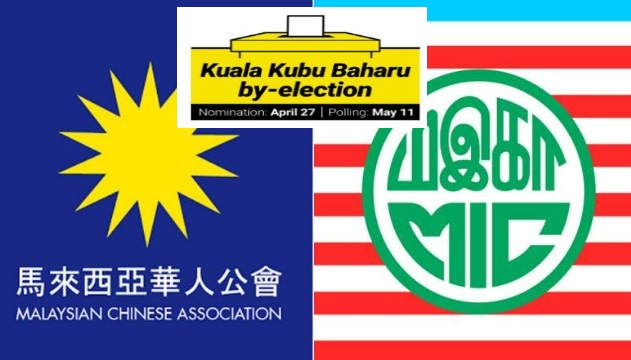LAST week, Malaysian Defence Minister Datuk Seri Hishammuddin Hussein requested at the Parliament for an emergency working trip to China to talk to the Chinese leadership, particularly on AUKUS.
When serving as Foreign Minister in April, he defended his use of the moniker “Big Brother” to refer to his Chinese counterpart Wang Yi, claiming that it was a gesture of respect during his visit to China.
But the question is, why should we inform China of our national security concerns? Malaysia is a sovereign country and we decide on our domestic issues and foreign policy, not others.
Even if the current leadership appears to favour China, our founding fathers made it crystal clear that Malaysia should stay non-aligned with any superpower and avoid becoming involved in any superpower conflicts.
Now, let us talk about the controversial AUKUS pact. In a nutshell, it is a military alliance between the US, the UK, and Australia. The goal of this accord is to maintain Asia’s strategic balance in the future. It is a tripartite partnership in which Australia will receive a new fleet of nuclear-powered submarines with much increased range and endurance to counterbalance China’s regional dominance.
China claims that the deal is exceedingly unwise, endangering regional peace and escalating the arms race. However, one must note that China’s dominance in this region, notably the recent incursions of its naval vessels and air force planes in the South China Sea, indicates that it wishes to gain an advantage over other nations in the region’s territorial disputes.
A Chinese survey vessel was found sailing in Malaysian waters off the coast of Sabah last week, close to a vessel commissioned by Malaysia’s national energy company, Petronas. Malaysia summoned China’s ambassador to Kuala Lumpur on Monday to convey its displeasure over its vessels entering our territorial seas.
Even while the current administration is commendable for conveying its disapproval with Chinese boats and planes in its borders, but it is insufficient. This country’s sovereignty must be safeguarded at all times. As a result, when Malaysia engages in bilateral or multilateral negotiations with other countries, it must demonstrate strength that it is on an equal footing.
China also has 27 outposts in the disputed waters of the South China Sea, according to the website amti.csis.org. Its overbearing presence erodes the region’s neutrality against the influence of other superpowers.
In 2016, China lost an international arbitration case to the Philippines over disputed seas in the South China Sea, and its unwillingness to recognise the decision has alarmed Association of Southeast Asian Nations (ASEAN) members like Malaysia.
Meanwhile, in a renowned Garden Island address in 2018, French President Emmanuel Macron gave a crucial push to France’s Indo-Pacific policy by defining a “Indo-Pacific axis” created by France, India, and Australia to counterbalance Chinese hegemonic ambitions.
Despite France’s dissatisfaction with Australia’s decision to cancel a submarine purchase agreement, France remains dedicated to countering China’s growth in the Indo-Pacific area. According to the website diplomatie.gouv.fr, France has overseas territories in the region, and 93% of its exclusive economic zone (EEZ) is in the Indian and Pacific Oceans. There are 1.5 million French citizens living in the region, as well as 8,000 soldiers stationed there.
China flexing its muscles
Therefore, it would be naive to believe that if a conflict arises in the future in this region as a result of the current conflict with Australia and the US, France will not join any alliance against China to protect its interests.
In March, the White House published a statement titled Quad Leaders’ Joint Statement: “The Spirit of the Quad.” Another pact with a shared goal for a free and open Indo-Pacific is the Quadrilateral Security Dialogue (QUAD), which brought together Australia, India, Japan, and the US.
Furthermore, QUAD also claimed that it aspires to create a region that is free, open, inclusive, healthy, based on democratic values, and free of coercion. QUAD pledges to promote a free, open, rule-based order derived from international law in order to improve security and prosperity in the Indo-Pacific and beyond.
According to the statement, QUAD supports the rule of law, freedom of navigation and overflight, peaceful dispute resolution, democratic values, and territorial integrity. The ASEAN Indo-Pacific Outlook, as well as ASEAN’s unity and importance, are reaffirmed by QUAD.
The QUAD, brimming with potential, looks to the future, aimed at sustaining peace and prosperity while bolstering democratic resilience, all while upholding universal principles.
This statement made it apparent that the US, as a member of NATO and the G7, is preparing for any potential confrontation in the Indo-Pacific area by participating in different military and non-military pacts to challenge China’s hegemony.
Taiwan’s National Defense Ministry (MND) reported that a total of 56 Chinese military aircraft violated Taiwan’s air defence identification zone (ADIZ) on Monday, according to Taiwan News.
On Monday, the MND declared the largest-ever single-day invasion by People’s Liberation Army Aircraft (PLAAF). Two SU-30 fighter jets, two Shaanxi Y-8 anti-submarine warfare (Y-8 ASW) planes, two KJ-500 airborne early warning and control aircraft (KJ-500 AEW&C), and 12 Xian H-6 bombers were among the aircraft. Later that evening, four more J-16 fighter jets arrived in the ADIZ.
The truth is, conflict is developing in the Indo-Pacific region and the signals are clear. The visit of US Vice President Kamala Harris to Vietnam and Singapore during the US army’s withdrawal from Afghanistan should signify that something important is about to happen in this region.
Are we prepared to confront the consequences of this forthcoming conflict as an ASEAN and Non-Aligned Movement (NAM) member state?
Remaining neutral is paramount
In any case, Malaysia must always retain its neutrality, even though we are a member of the Five Power Defence Arrangements (FPDA), which comprises the UK, Australia, New Zealand and Singapore.
For the uninitiated, this agreement was signed in 1971, according to the Defence Ministry’s website. The FPDA’s mission is to provide Malaysia and Singapore with external defence support.
The FDPA is the only international agreement which includes components of conventional warfighting as well as non-conventional domains like counter-terrorism and maritime security since 2004. In June, the 20th FPDA Defence Chiefs’ Conference (FDCC) took place in Kuala Lumpur.
Therefore, the statements made by our Defence Minister will not only jeopardise our working relationship with our “traditional” defence allies, such as the UK and the US, but also imperil our position as a NAM member.
For whatever circumstances, despite our proximity to our trading partners, especially China, the sovereignty of this country cannot be compromised. – Oct 9, 2021
R Paneir Selvam is a senior lecturer at the Faculty of Business, Economic and Accounting/Institute of Crime and Criminology, HELP University.
The views expressed are solely of the author and do not necessarily reflect those of Focus Malaysia.










